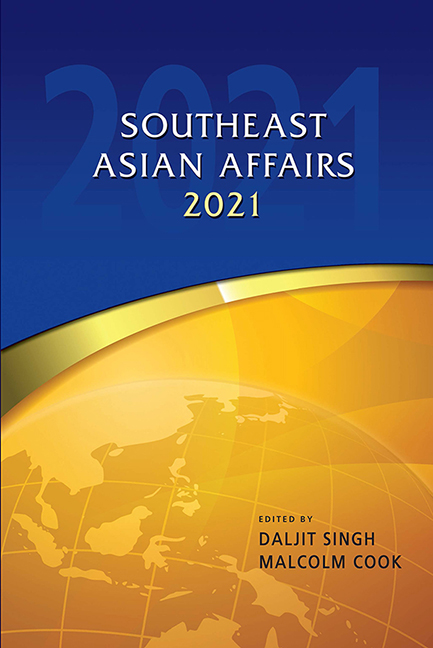Repositioning Indonesia in the Post-COVID-19 Global Value Chains
Published online by Cambridge University Press: 09 October 2021
Summary
At the end of 2019, a pandemic caught the world unprepared. The SARS-CoV-2 virus began spreading in Wuhan, China, before exploiting the interconnectedness that lies at the heart of the globalized economy. To halt the spread of COVID-19, many countries began closing their borders and restricting movements within. The integrity of global value chains (GVCs), which was already strained by the US-China trade war, took further blows when countries went into isolation. Multinational enterprises are beginning to rethink their dependence on China and governments are calling their corporations to return home (reshore) or move nearby (nearshore). With Southeast Asia potentially receiving the bulk of nearshoring in Asia, Indonesia is pushing for the biggest regulatory reform since the 1998 Asian financial crisis in order to benefit from this trend.
This chapter begins with an overview of the push for reshoring spurred on by the pandemic. It will then continue with an overview of Indonesia's economic condition and GVC participation prior to and during the pandemic. The section after this will highlight Indonesia's complex regulatory system, which deters foreign investors, and the reform efforts leading up to one of the most controversial pieces of legislation in the past twenty years: the Omnibus Law on Job Creation. This is then followed with several sections analysing the law, focusing on two parts of the law that try to balance large investment with small businesses through a budding GVC model. Finally, a brief consideration of potential complications that could undermine the investment and GVC goals of the law is presented.
Global Value Chains: The Unravelling
GVCs drive approximately half of global trade and their activities have boosted foreign direct investment (FDI) since 1990. Led by multinational enterprises, they depend on open borders and lean production methods to keep their production costs low. With international transport heavily restricted in 2020, some GVCs faced difficulty in securing the necessary flow of materials and were forced to stop or reduce their activities. Furloughing and retrenchment soon followed, causing demand to contract as well. It is estimated that this combined supply and demand shock will shrink international trade by 13–32 per cent and FDI by 30–40 per cent in 2020 and 2021.
- Type
- Chapter
- Information
- Southeast Asian Affairs 2021 , pp. 122 - 138Publisher: ISEAS–Yusof Ishak InstitutePrint publication year: 2021

